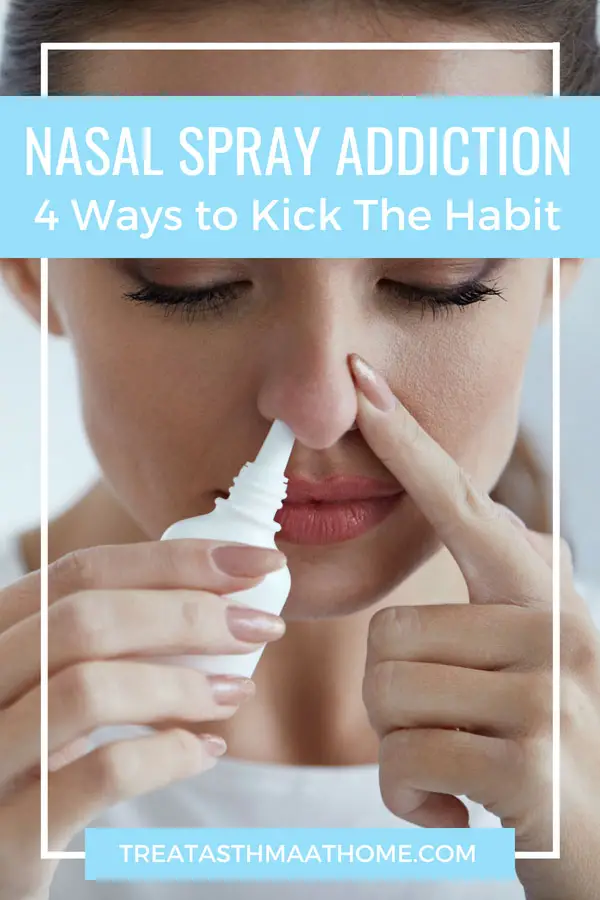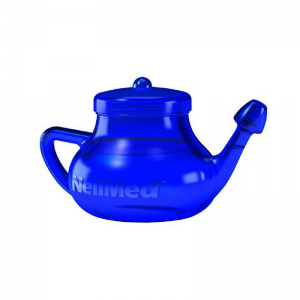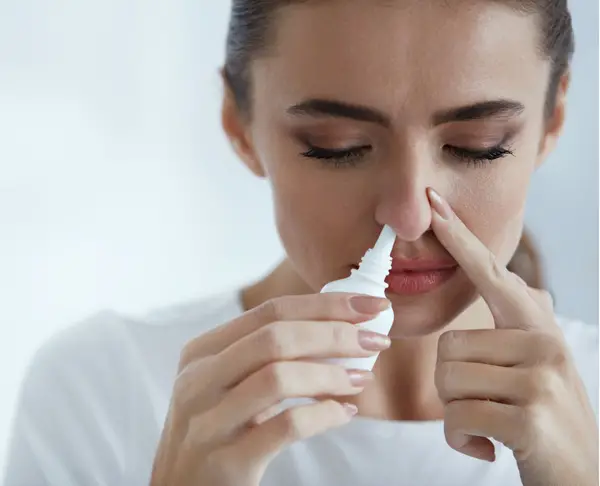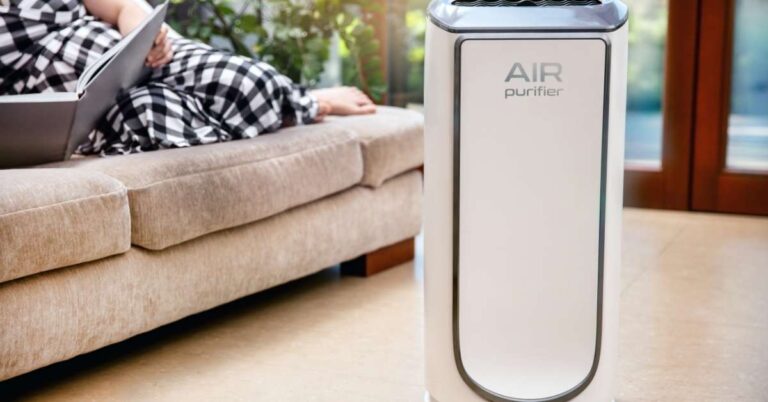4 Tips for Kicking Nasal Spray Addiction

Nasal spray addiction is real, and it is nasty. It happens when your body becomes dependent on the medicinal spray to keep your nasal passages clear. In addition to your body’s reduced ability to fight nasal inflammation on its own, the medicine itself loses effectiveness over time.
This leaves the sufferer with more nasal congestion than before, along with a medicine that doesn’t work as well to relieve it. Not fun!
If you’re like me, along with asthma you might have problems with inflammation and stuffiness of the sinuses and nasal passages.
If so, you’re probably no stranger to the over-the-counter decongestant sprays – and to nasal spray addiction, too.
That’s because these nasal sprays are great for instant relief, but they’re usually only meant to be used for around three days.
But what if you exceed the maximum recommended dose? The picture isn’t pretty, and we asthmatics have probably all been guilty at some point.
When the relief is so quick, much like with an asthma rescue inhaler, it’s easy to ignore the small print and continue using it past that 3 day mark. Unfortunately, overuse often leads to a condition known increasingly in the medical community as nasal spray dependence.
I’ve been down the road to nasal spray addiction, and it’s not fun. If you find yourself in this situation and are a looking for a way out, keep reading.
How to Kick Your Nasal Spray Addiction:
1. Keep your nasal passages clean with a Neti pot.
 If you want to reduce inflammation, it’s important to keep the nose free of debris and other irritants. Neti pots are great, inexpensive ways to thoroughly clean your nose and reduce congestion dramatically, all in a matter of minutes.
If you want to reduce inflammation, it’s important to keep the nose free of debris and other irritants. Neti pots are great, inexpensive ways to thoroughly clean your nose and reduce congestion dramatically, all in a matter of minutes.
Simply mix some distilled or boiled water with a saline solution (included with this Neti pot that I use), and pour from one nostril through the other. Not only will the saline water remove dust and dirt, it will actually reduce inflammation, too.
For best results, I like to use warm water.
2. Consider an oral decongestant for temporary relief.

While your nasal passages are healing, an oral decongestant can help to keep them clear so that you can breath more easily.
I used a generic form of Sudafed with good results, but there are lots of alternatives.
Use as directed, and only for 1-2 weeks, while your ability to decongest naturally restores itself.
3. Try this special nose unblocking technique WITHOUT SPRAY, developed as part of the Buteyko breathing method.
I love this trick because you don’t need to buy anything, and you can do it anywhere, at any time (as long as you don’t mind looking slightly foolish).
First, calm your breathing by taking a few, conscious breaths, in and out. Next, pinch your nose so that no air can get in and out.
Keeping your nose pinched and mouth closed, hold your breath and rock your head gently up and down. Count to ten and then take a slow breath through your nose. This should create some relief. If not, try this same technique again 2-3 more times.
For a live demonstration, check out this video:
If, like me, you’re surprised by how simple yet effective this technique is, then I recommend you learn more about Buteyko. I’ve found some of it’s other strategies really helpful for managing my asthma. This book is a great place to start:
4. Drink plenty of water.

Water is a natural anti-histamine, as dehydration can cause increased histamine production. Histamines are what cause typical allergy symptoms, and research has shown a link between histamines and asthma symptoms.
Water will also help to dilute phlegm and mucus making it easier to pass through the airways. I keep a big jug by my desk, and make sure I’m always drinking from it.
So, drink up! To help, here’s 7 strategies to help ensure you’re getting enough water each day.
In fact, drinking more water was one of the 6 easy steps I took to stop needing my puffer so much. Good read if you’d like to end your albuterol addiction, too!
Let us know in the comments if these tips work for you, or what you’ve used to treat your nasal spray addiction. We’re trying to help fellow asthmatics get their symptoms under control – please share with us!







